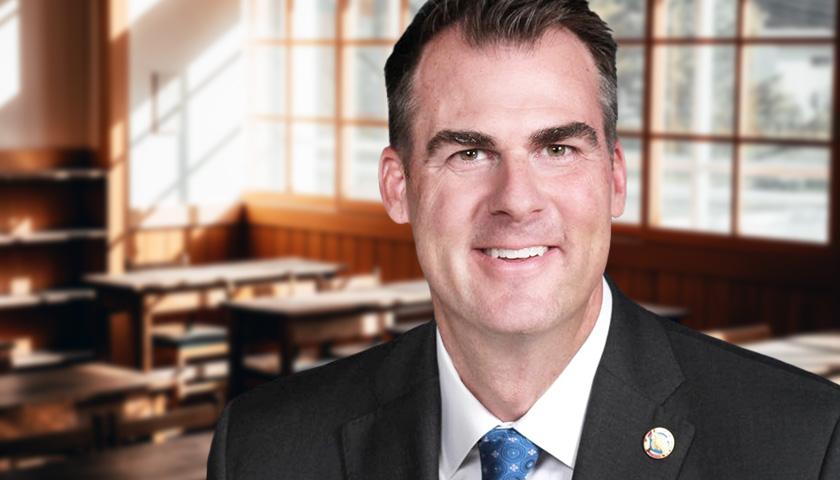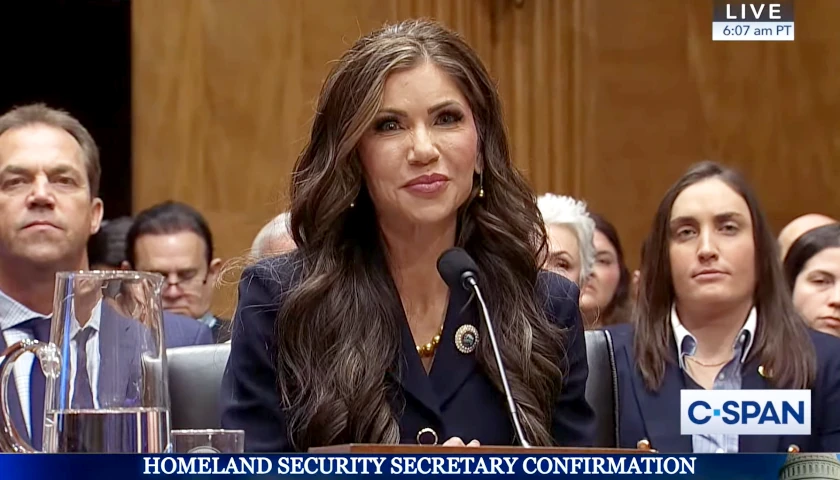by Reagan Reese
While conventional school choice programs typically involve vouchers administered by the state, Oklahoma is set to create a tax credit-based initiative to fund education outside the public school system.
The state’s school choice program, which would create a refundable tax credit program for all families that can be used on homeschooling and private education expenses, is tied to legislation that would increase funding for public schools and give teachers a pay raise and create a refundable tax credit, Oklahoma officials told the DCNF. The bills passed the Oklahoma House of Representatives on Wednesday in 75 to 25 and 78 to 23 votes, sending the legislation to the state Senate where it is expected to pass.
“What we did was we give a $5,000 tax credit, but it’s refundable,” Oklahoma Republican Gov. Kevin Stitt told the Daily Caller News Foundation. “In other words, you can get $5,000 to move and go to a school of your choice. That’s the great thing about it is now we’re funding students, not necessarily the system or the zip code where you happen to live. It’s gonna allow you to be more flexible with where the kids go and have the dollars follow the kid whether it’s to a private school, another public school, it doesn’t really matter. That’s the exciting thing about it and there’s no income limits to it.”
 States such as Arizona and Florida have school choice programs centered around Education Savings Account (ESA) programs which provide families who withdraw their students from public and charter schools with taxpayer funds.
States such as Arizona and Florida have school choice programs centered around Education Savings Account (ESA) programs which provide families who withdraw their students from public and charter schools with taxpayer funds.
Instead of a voucher program where funds go into a separate account directly from the state, the mechanism behind the “Oklahoma Parental Choice Tax Credit Act” is a tax credit of $5,000 per child which is refundable and involves a third party, most likely the school. The school choice legislation is tied to a $2,500 raise for public school teachers as well as an additional $500 million in funding for public schools.
“We’re utilizing a tax credit measure to keep the transaction strictly between the students, parent and or guardian and the school where the state is completely disconnected from money, from influence over the school and the parent in anyway,” Republican Speaker of the Oklahoma House of Representatives Charles McCall, who authored the bill, told the DCNF. “We believe that approach best preserves the integrity of private education and the ultimate parent’s choice of how they want to educate the child if they choose something other than public education.”
Additionally, the state has a scholarship program for students with disabilities which is stackable with the tax-credit program, providing more funds for students, Stitt’s office t0ld the DCNF.
The Oklahoma Tax Commission, which will serve as the oversight authority, will give $5,000 to families who cannot afford to pay the amount up front, Stitt’s office told the DCNF. Aside from tuition, the tax credit can be used to cover the cost of educational materials, tutoring and fees for college admissions tests.
Those opposed to the bill argue that the tax credit doesn’t benefit the working-class, Democratic State Rep. Trish Ranson told the Oklahoma Council of Public Affairs.
“We’re talking about a tax credit that taxpayers can apply for on their taxes,” Ranson told the outlet. “If they do not owe the amount of money in taxes that meets the credit that they are eligible for, then they don’t have to pay taxes and they get a check. That check is not their money. It’s not a refund. It’s not taxes that they paid. It’s mine. It’s yours. It’s everyone in the state of Oklahoma’s taxes that have been paid.”
Oklahoma’s school choice program aims to fund students outside of the public school system but it also helps combat Critical Race Theory and gender identity lessons that are entering schools, McCall told the DCNF.
“This empowers parents to get their child into a different environment if that is happening in a school district or within a classroom,” McCall told the DCNF. “That’s very much one of the underlying issues. We need to make sure parents have all choices and options at their disposal.”
– – –
Reagan Reese is a reporter at Daily Caller News Foundation.
Photo “Kevin Stitt” by Governor Kevin Stitt. Background Photo “Classroom” by 2y.kang.





